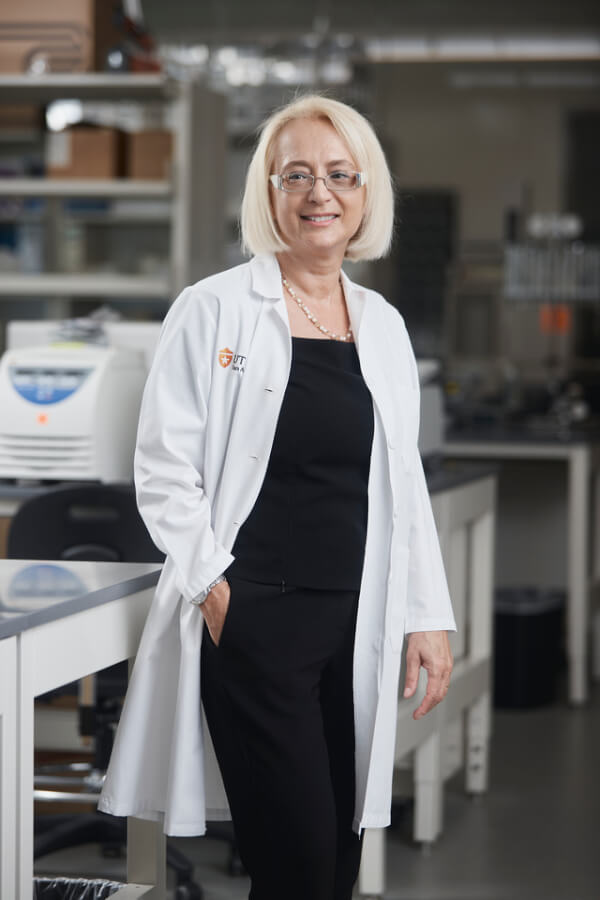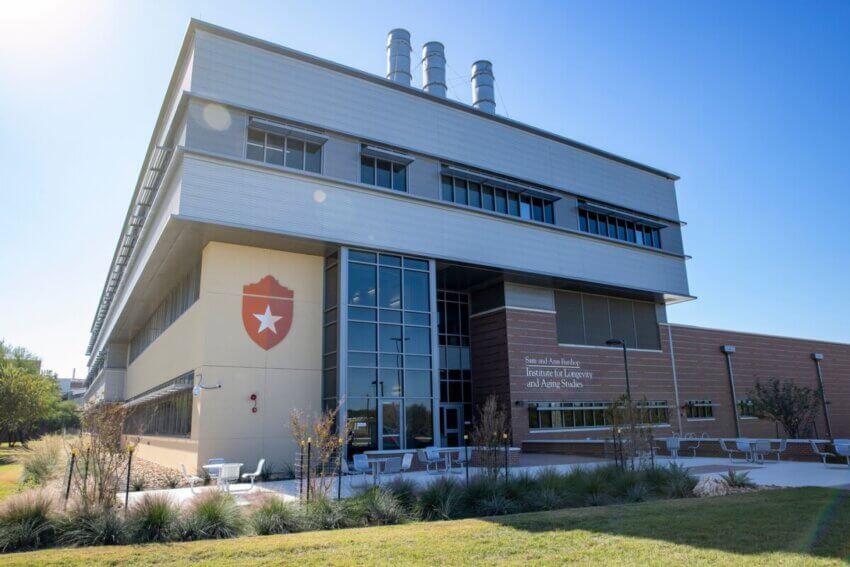New NIH-funded program aims to grow pipeline of students in aging research across Texas
A new multi-site, eight-week research program aims to engage first-year medical students interested in aging medicine. The Sam and Ann Barshop Institute for Longevity and Aging Studies at The University of Texas at San Antonio Health Science Center received National Institutes of Health (NIH) funding this year for The University of Texas Medical Student Training in Aging Research (UT-MSTAR) Program, which is under the direction of Elena Volpi, MD, PhD, FGSA, director of the Barshop Institute, Sam and Ann Barshop Endowed Chair in Clinical and Translational Research in Geriatrics and professor in the Joe R. and Teresa Lozano Long School of Medicine, Department of Medicine, Division of Geriatrics, Gerontology and Palliative Medicine.

The program, supported by a T35 grant from the National Institute on Aging, involves the four largest medical schools in Texas: Joe R. and Teresa Lozano Long School of Medicine at UT San Antonio; McGovern Medical School at The University of Texas Health Science Center at Houston with site director Holly Holmes, MD, MS, AGSF; John Sealy School of Medicine at The University of Texas Medical Branch with site director Erin Hommel, MD; and The University of Texas Southwestern Medical School with site director Ambarish Pandey, MD.
The population of older Americans is growing rapidly and becoming progressively more complex, increasing the need for multifaceted and innovative geriatric research and medical care. Yet the number of medical school graduates who select geriatrics or want to become clinicians-scientists in aging is low. By exposing first-year medical students to high-quality, exciting research on aging, led by accomplished mentors in a nurturing environment, the UT-MSTAR program provides an early opportunity for students to develop genuine interest and skills that steer them toward a career in aging research and geriatrics.
One participant said the program deepened her understanding of aging research and provided her with a welcoming scientific community.
“I initially found research to be intimidating and, as a result, had little research experience during my undergraduate years,” said Sophie Rock, who was mentored during the program this summer by Lisa Kilpela, PhD, associate professor of medicine with the Division of Geriatrics, Gerontology and Palliative Medicine in the Department of Psychiatry and Behavioral Sciences. “The UT-MSTAR program sounded like something that would show me the ropes or at least get my foot in the door of research; however, I got so much more out of the program than I expected. I got to learn about certain focuses in aging research, how to stay engaged in aging research, and what kind of opportunities exist out there while still practicing as a physician. I got to learn about the San Antonio community through PROSPERA and the San Antonio Food Bank, and how I can be a better physician when considering what goes on beyond the exam room. I also got to meet other students like me who are also trying to explore aging research without a research background. UT-MSTAR has given me a community to turn to and has taught me that as long as I am truly passionate and ready to give it my all, even someone without traditional research experience can find a place and thrive in research.”

The program leverages the four institutions’ rich aging research programs and well-established inter-institutional research and educational collaborations in aging and geriatrics. More than 90 faculty members from the participating institutions will participate as potential mentors for UT-MSTAR students.
UT-MSTAR students participating in the program complete a mentored research project, participate in group didactic activities, shadow geriatricians and clinician-investigators in aging and finish up the program with a presentation of their project results at the UT-MSTAR annual consortium meeting and at a national conference on aging.
“We expect students to learn basic research skills, methodologies, technical expertise in aging research, increase their positive attitude and perceptions towards caring for older adults, develop a long-lasting connection with their mentors and eventually pursue a career in aging research,” said Volpi.
The first group of 18 students selected for the inaugural summer research scholarship presented their results July 19 at the UT-MSTAR annual conference.


